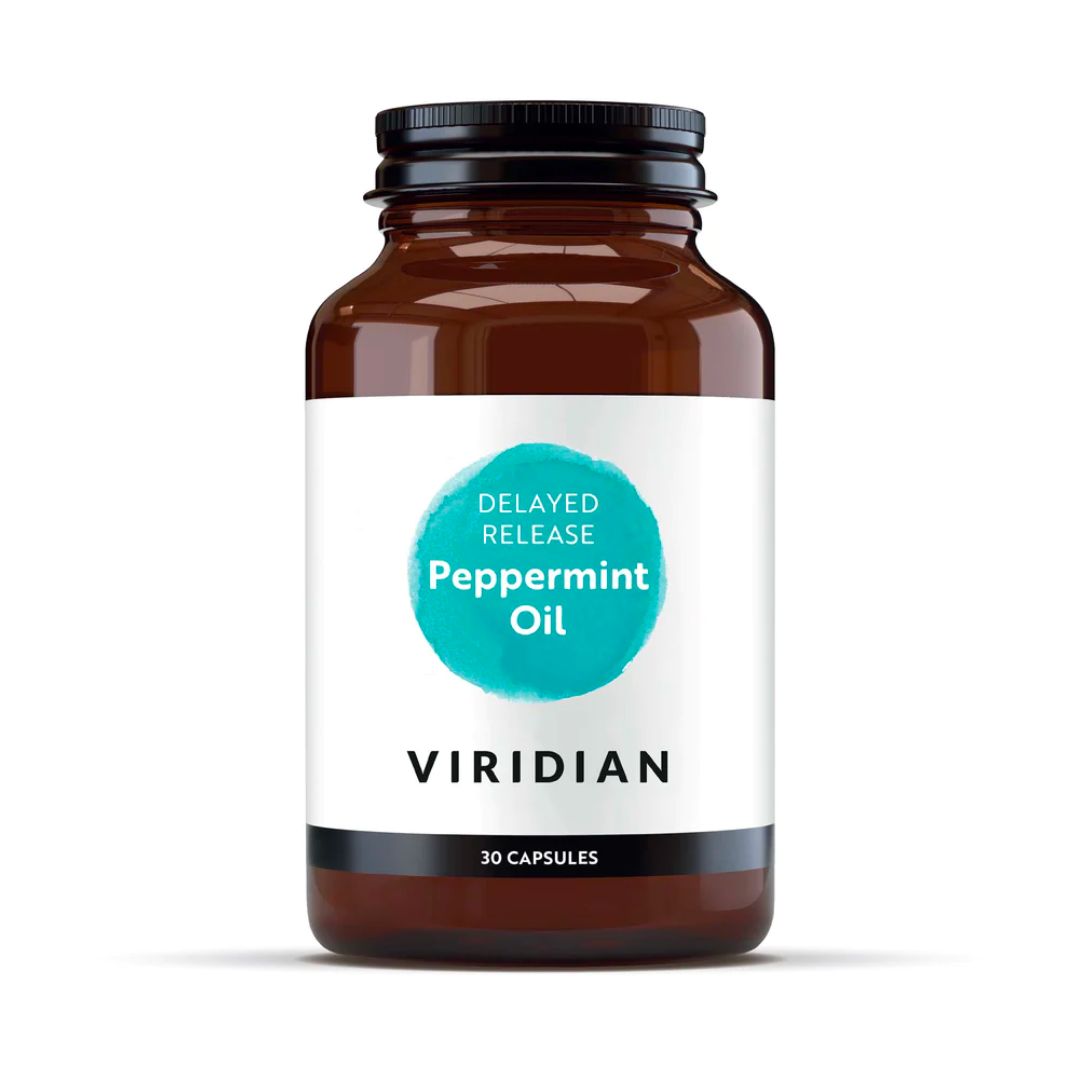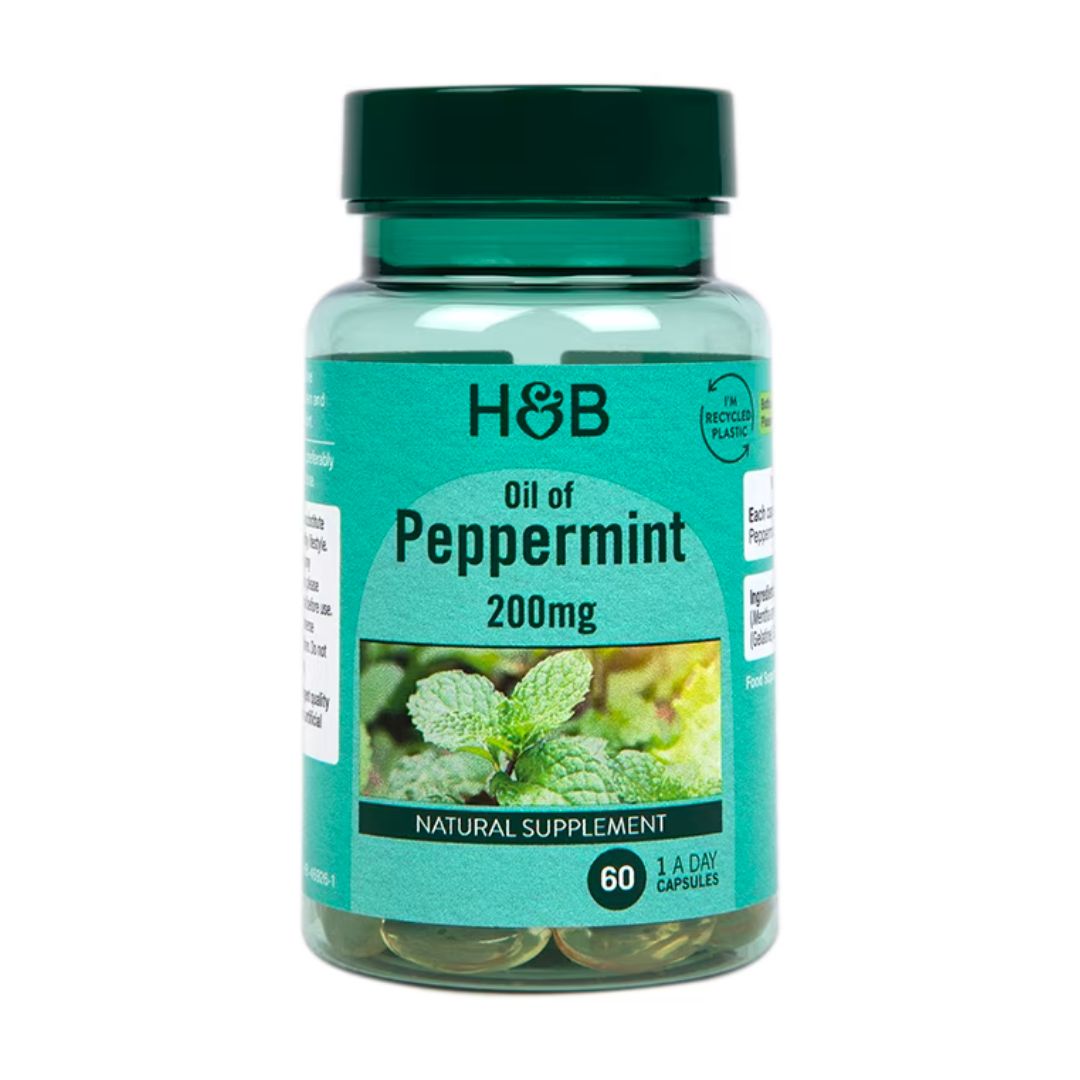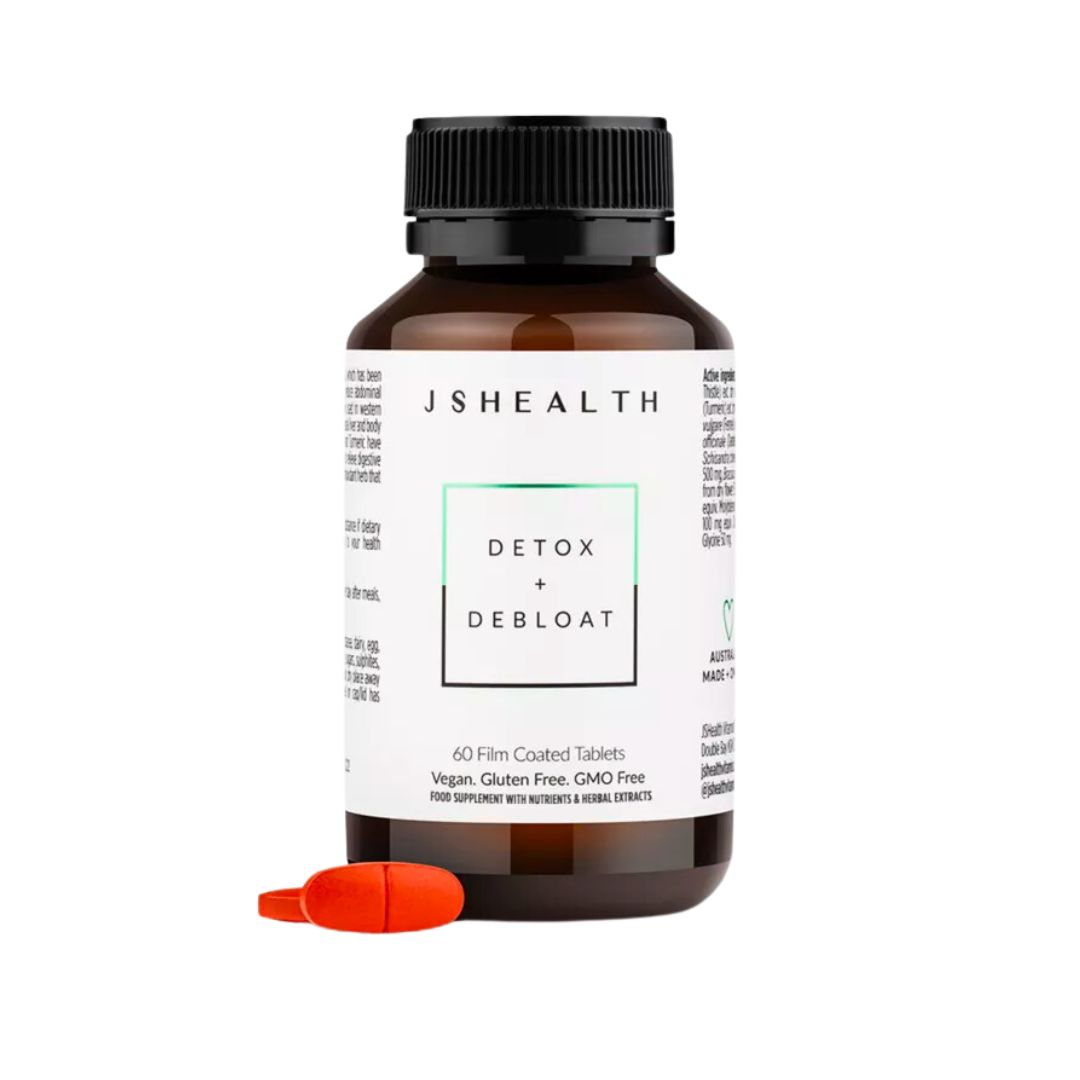I always struggle with bloating and a sore stomach at this time of year - but this handy hack has changed the game
And it's under £10.

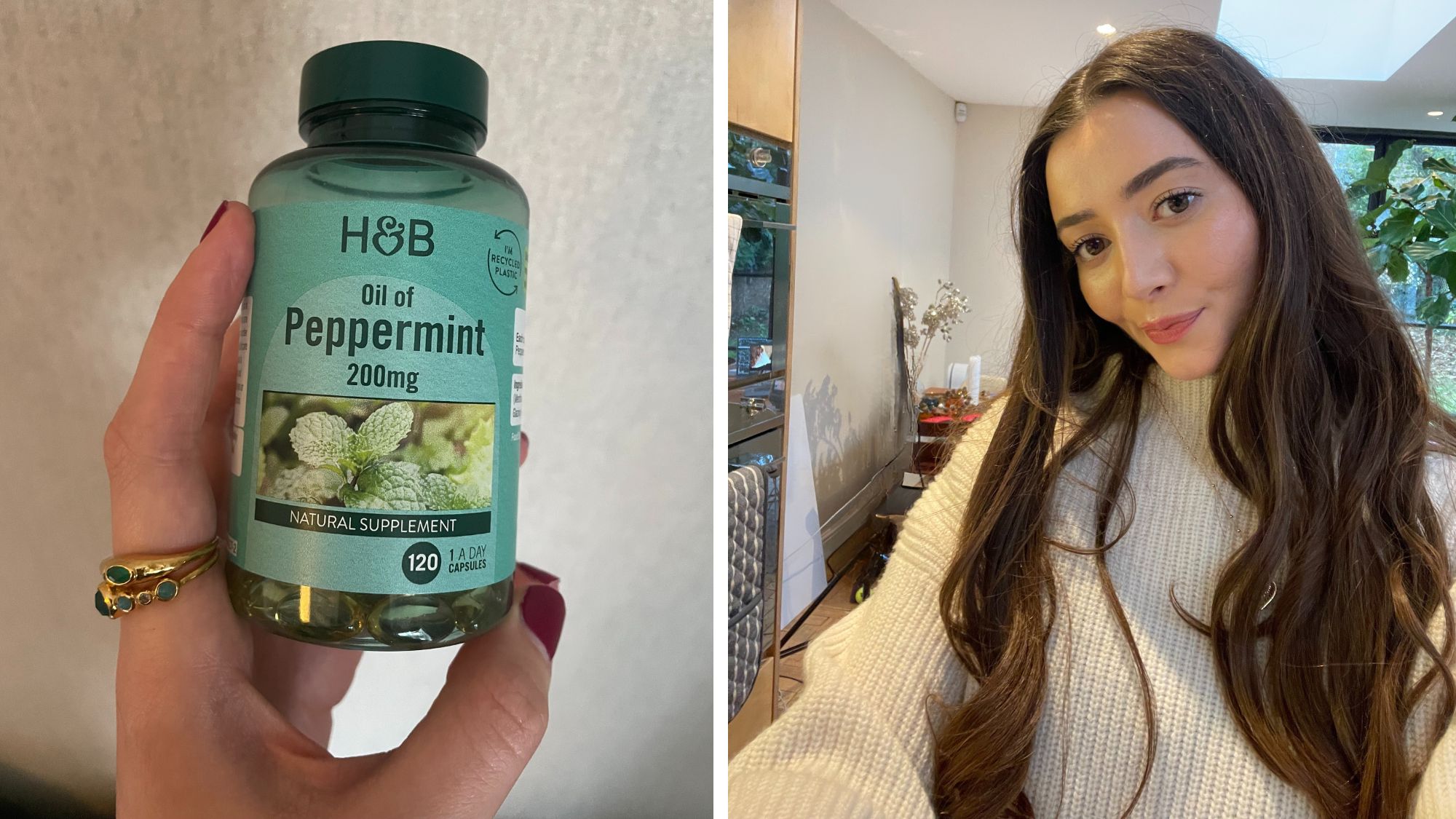
Did you know that peppermint oil capsules can help sore tummies and IBS, too? I didn't. Admittedly, I'd never heard of them until I saw a nutritionist with a seriously upset stomach last month. As it turns out, peppermint oil capsules promise to help relieve achy bellies, bloating, and stomach cramps - so I decided to give them a go.
'Tis the season to indulge, after all, which means plenty more sweet treats as part of the festivities. While I'm all here for daily Celebrations, panettone and mince pies, my stomach sometimes - well, isn't. Know the feeling all too well? Then you'll likely want to read more about peppermint oil capsules.
Studies, including this 2014 paper, have shown that peppermint oil can help ease symptoms of IBS, including cramping, abdominal pain, bloating, gas, and diarrhoea. While I haven't been diagnosed with IBS myself, I am slightly lactose intolerant and struggle with bloating and stomach pains at this time of year - something I'm certainly not alone in. "Indulgence in heavier foods during the Christmas period, more time spent in sedentary positions, extra stress, and more alcohol and sugar can all contribute to making our digestion more sluggish, setting the scene for festive bloating and tummy discomfort," says Alison Hayward, naturopathic nutritional therapist at longevity clinic HUM2N.
To see how I got on trying peppermint oil capsules for a week? Then keep scrolling - and don't miss what happened when MC UK staffers tried mint water, lemon water, and apple cider vinegar to ease bloat, too.
Peppermint oil capsules promise to be the answer to festive bloat - so I tried them
What are peppermint oil capsules?
"Peppermint oil is used as a natural remedy for various digestive issues, including bloating," explains nutritional therapist and health coach Sonia Wahlroos.
When turned into a supplement, the capsules are "made using a very strong distillation of active oils, such as methanol from the leaves, stems and shoots of the peppermint plant. These oils are formed into a capsule which can be taken orally," continues Hayward.
Wondering what they taste like when you take them? The clue is in the name of this one - they taste minty when you swallow them with water.
Celebrity news, beauty, fashion advice, and fascinating features, delivered straight to your inbox!
What are the benefits of taking peppermint oil capsules?
The NHS website suggests taking peppermint oil capsules to relieve IBS symptoms, stomach cramps, bloating and flatulence - it is brussel sprout season, after all.
That said, they offer a whole host of other benefits. "Peppermint oil capsules can be used naturally to treat a range of health symptoms," says Hayward. Case in point: this 2019 study found they have both antimicrobial and anti-fungal properties.
So, how do they work? Simply by helping to relax the smooth muscle in the walls of your gut. "In those people who suffer with IBS symptoms, your gut wall muscles can contract more frequently, inducing bloating and discomfort as the nerves are more sensitive in these areas," explains the nutritionist. "Peppermint oil can also be used as an analgesic, helping to reduce deep pain in the digestive system."
What are the side effects of peppermint oil capsules?
As with anything that can have a lot of benefits, there is also the potential for some side effects. "Possible side effects of peppermint oil capsules can include heartburn, nausea, abdominal pain, and dry mouth. Rarely, peppermint oil can cause allergic reactions," Hayward explains.
Do note, though: capsules containing peppermint oil are often enteric-coated to reduce the likelihood of heartburn, the expert goes on. "However, if enteric-coated peppermint oil capsules are taken at the same time as antacids, the coating can break down too quickly and make the risk of heartburn more likely," she warns.
Her advice? Don't supplement peppermint oil capsules regularly - rather, rely on them for temporary relief. "They're more like a medication when needed, rather than something that needs to be a part of your daily supplement regime," Wahlroos explains.
Following both expert's advice, I only took the capsules when I experienced bloating or discomfort. Both suggest seeking professional advice if suffering from severe digestive symptoms or pain, too.
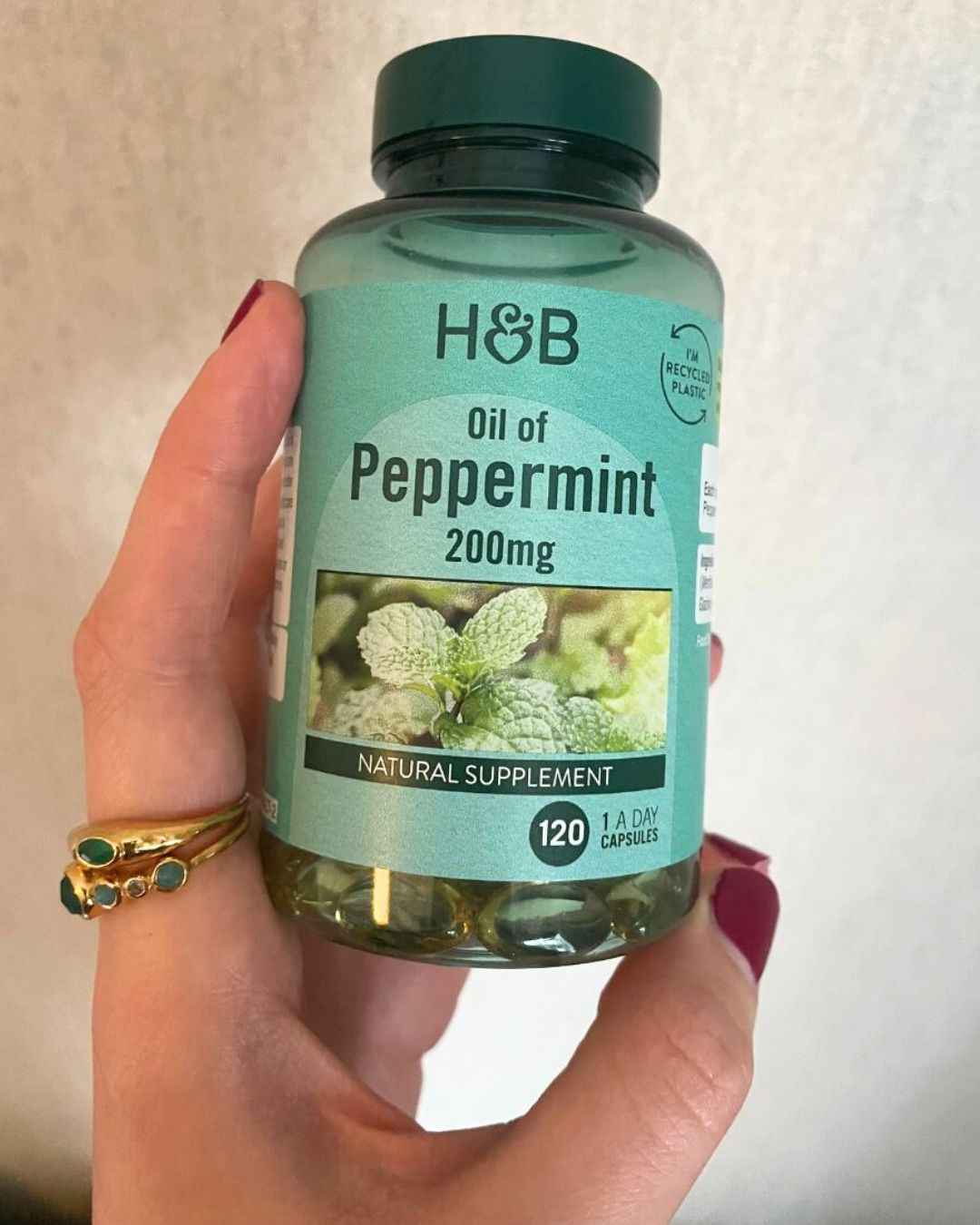
The peppermint oil capsules that Dionne tried for this piece
Do peppermint capsules really work? I tried them
In the morning
I popped into my local Holland & Barret and opted for their own brand of peppermint oil capsules. Like most on the market, they suggest taking one to three capsules per day, preferably with a meal. That said, the experts I spoke to for this piece advised taking them as and when necessary, so I stuck with that advice throughout my testing period.
I'll be honest: I was sceptical at first. How were they any different to peppermint tea? Spoiler alert: they're totally different. For the first few days, I took them midday whenever I had a sore stomach.
By day four of testing, I hadn't noticed any severe side effects, so decided to give a peppermint oil capsule a go one morning when I woke up slightly bloated. I swallowed it half an hour after my morning coffee. Normally, coffee upsets my stomach a little (but I still drink it because, caffeine). Not after popping a peppermint oil capsule, though - I was genuinely shocked at how much better I felt.
At lunchtime
I typically have quite a big lunch or sit at my desk too long and forget to have lunch until 3pm. Then, when I do eat, I end up with an achy tummy that can sometimes last me until dinner time. While I was excited to try peppermint oil capsules, I did expect more from them. It didn't do much for my post-lunch bloat, and it took a while for me to feel relief.
That was until I read that the NHS website suggests taking them an hour before meals. I'd been waiting until half an hour after I ate to try them for the first few days, but for the rest of the week, I took them an hour before my meal, at around midday. Even after having a heavy lunch, I wasn't bloated. In fact, the pain never arrived in the first place.
In the evening
Evenings, for me, are when I normally experience the most bloating or discomfort. Although the bloating doesn't bother me as much, the stomach ache does. Sometimes it stops me from getting to sleep.
So, did they work? In short, yes. Fluctuance? Gone. Pain? I was relieved. I was shocked but pleasantly surprised that something natural could help in such a big way. I had only used peppermint oil as an essential oil for stress, but now it was taking away one of the biggest stresses in my day (an achy stomach) in the form of a peppermint oil capsule.
Will I keep on taking peppermint oil capsules?
Yes, but only when I really need them. While I am pleasantly surprised by how much these actually work (honestly, I didn't think they would), I'm heeding Wahlroo's advice and will only use peppermint oil capsules when I really need them. I'll also definitely be keeping them on hand for Christmas dinner.
Of course, I can only share what worked for me - peppermint oil capsules will impact everyone differently, so it's important to speak to a qualified professional before giving them a go. That said, having spoken to two nutritionists and testing them myself, they worked for me. I want them to keep working when I need them to, so I don't want to overuse them and start feeling the side effects rather than the benefits. Plus, the NHS website suggests only using them continually for up to two weeks unless your doctor advises otherwise.
But will I keep them in my bag for when my stomach is feeling awful? Absolutely. For £6.99, it's worth having them there as a backup. I'm even considering putting them in a couple of stocking fillers.
Shop peppermint oil capsules

Dionne Brighton is the Social Media Editor at Marie Claire UK. After writing about everything from nail trends to celebrity style moments for Marie Claire UK, Glamour UK and Woman & Home, she now leads the brand’s social strategy. Her work transforming Marie Claire UK’s social platforms earned her a BSME Talent Award nomination.
